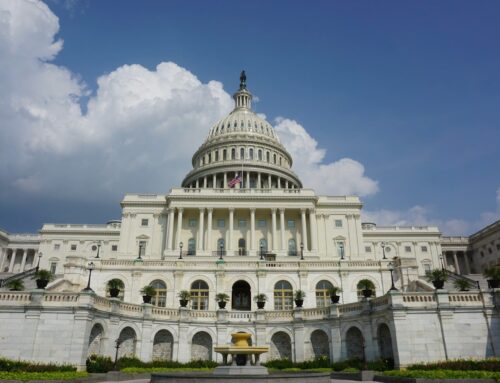In the hustle and bustle of the modern world, where one can ask an electronic assistant to turn on our lights, turn up the heat or recite our favorite recipe for macaroni and cheese, people seem to have lost the art of reading.
Because in Washington, where year after year congressional gridlock has led to massive grand bargains or continuing resolutions to fund the entire federal government, it’s the fine print that matters. And for that reason it’s important to read the so-called anomalies list recently sent to Congress by the Obama administration.
What are anomalies in the context of the federal budget? When Congress fails to meet its basic constitutional duty to pass the 12 separate appropriations bills to fund the government, a continuing resolution is passed to keep the lights on and prevent the government from grinding to a halt. These bills, in theory, fund all programs at the same dollar figure those programs received in the previous fiscal year. But, in practice, there are always special cases that the agencies put forward as anomalies, asking Congress for special dispensation to fund programs at higher or lower rates than the previous fiscal year.
Sometimes these continuing resolutions are short-term and keep the wheels of government turning for just a few days. Sometimes they’re medium-term bills, like the one passed late last September to keep the government open until Dec. 9. Well, tick-tock, look at your calendars: That last stop-gap bill is about to expire and Congress and the incoming Trump administration need to decide how many months to make the next one. At first, the talk was through March, but recent reports say Congress is considering a funding bill that will extend to May. As Defense Secretary Ash Carter complained that would be two-thirds of the fiscal year.
If the funding measure passed next week extends through May, then the anomalies really matter. Just in the areas of national security spending at the Pentagon and the Department of Energy, there are several big spending programs where the Obama administration is seeking anomalies to the fiscal year 2016 level of spending.
First, and potentially the most expensive anomaly is one to allow the secretary of the navy to spend as much as $773 million on the ramp-up to build a new ballistic missile submarine. The Navy seeks a new advanced procurement line, not included in previous budgets, to buy certain parts and materials in advance of the actual need for those items in the construction of the submarines. And while this may seem to make sense, advance procurement actually serves to lock in future legislators to the actions of this Congress, which will only be in existence for a few more weeks. Because if you spend hundreds of millions of dollars on buying materials you won’t actually be using in the coming fiscal year, you create a powerful argument to continue the program, even if circumstances change and a weapon system becomes a lower priority to future policymakers. Lobbyists for the manufacturers of those components swarm the Hill (and the Navy) to keep the gravy train rolling. “We’ve already spent millions on advanced procurement!” they’ll sat. “That money will all be wasted if we don’t continue the program.”
Other anomalies include increasing production on the KC-46A tanker contract to “avoid penalties of $331 million.” Well, here’s a thought, perhaps the Pentagon needs better contract lawyers to keep the military services from signing contracts that include large penalties – particularly when the penalties can be triggered by a lack of timely congressional action.
.png)
The Department of Energy is asking for an anomaly that would allow the department to increase funding for any program in the National Nuclear Security Administration by as much as $5 million with only written notification to the Congress fifteen days after the department takes such an action. Again, the programs that could reap these increased benefits are weapon programs, in these cases, nuclear weapons.
There’s even an anomaly that isn’t really an anomaly. The Export-Import Bank – often called the “Bank of Boeing,” its largest beneficiary – can’t approve any transactions (generally used to finance exports) over $10 million without a quorum (three) of the board of directors and they only have two board members currently. The anomaly? Change the rules so bigger financing and loans can be approved. This exposes the boosters argument are a boon to small business. Small businesses that benefit from the Export-Import Bank don’t need financing greater than $10 million, but Boeing sure does.
The way to avoid dealing with these anomalies is for Congress to do its job and pass each individual appropriations bill prior to the start of the fiscal year. But here on planet Earth that hasn’t happened since 1994. So, until it happens again, we’ll keep reading the bills and the anomalies and pointing out the mundane, the stupid and the outrageous.










Get Social